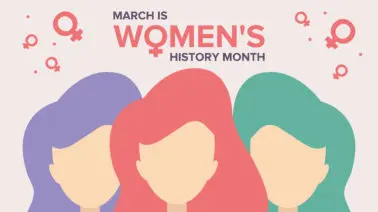When Udacity first approached me to be an instructor, I was at a chaotic point in my personal career. I had spent the majority of 2019 building a brand new team at my company, I was working towards a promotion, and I was trying to hire several new analysts, and oh … I was also five months pregnant.
I almost turned it down. Between work and my commute, there were 60 hours missing from my waking hours every week. Udacity was upfront about how big of a commitment it was to be an instructor, and I did the math.
If everything went according to schedule, I could be working more than 80 hours per week all the way into my last month of pregnancy. I asked a few of my female friends what they would do, and the responses were mixed.
“You really have to take care of yourself in these next few months, you don’t want to get too burned out,” was the response of some. However, others were more encouraging: “Don’t leave until you go on leave.”
‘If Not Me, Who’?
After getting feedback, I reflected on my educational journey and career. In 2011, I completed a Bachelor’s in neuroscience and computer science. And, in 2017, I completed a Ph.D. in a similar field.
I had a couple of female professors, but I had never had a female homework or project partner. I had never had a female mentor or supervisor.
In an attempt to make my mark on this issue, I spent a year teaching Girls Who Code back in 2016 to a group of middle and high school girls. I thought about those girls and looked back at the Udacity proposal and I asked myself, “If not me, who?”
“There are so many phenomenal teachers out there. Regardless of age, sex, or race, they all have the potential to inspire and alter the course of a student’s life.”
I couldn’t say no. I couldn’t stop thinking about those students from Girls Who Code. Over the course of a year, I had watched them go from girls who were shy about saying they wanted to learn to code, to girls who boldly presented their final projects at a Google showcase in front of hundreds of people.
“You made my daughter feel like she could be good at this,” one parent told me that night. “She needed to learn it from someone who she looked up to, someone who she thought she could try to be like,” she added.
Teaching is More Important than Ever
There are so many phenomenal teachers out there. Regardless of age, sex, or race, they all have the potential to inspire and alter the course of a student’s life. To me though, there’s something important about being able to see a part of yourself in a teacher.
Teaching for Udacity’s AI for Healthcare Nanodegree program became something bigger than me. Despite the 80+ hour weeks, it was worth it. Where am I now?
I just finished building a course in the program, and it’s set to go live in mid-May. I’m eight months pregnant, and I talk about it in my course videos.
I want students to connect with me as they learn from me, and to know that there are millions of types of people out there who have the same goals as them of learning something new.
Udacity is always looking for knowledgeable professionals who want to be instructors. Visit our instructor page to get more information.
Emily is an expert in AI for both medical imaging and translational digital healthcare. She holds a PhD from Harvard-MIT’s Health Sciences & Technology division and founded her own digital health company in the opioid space. She now runs the data science division at Wellframe and is an instructor in Udacity’s upcoming AI for Healthcare nanodegree.
